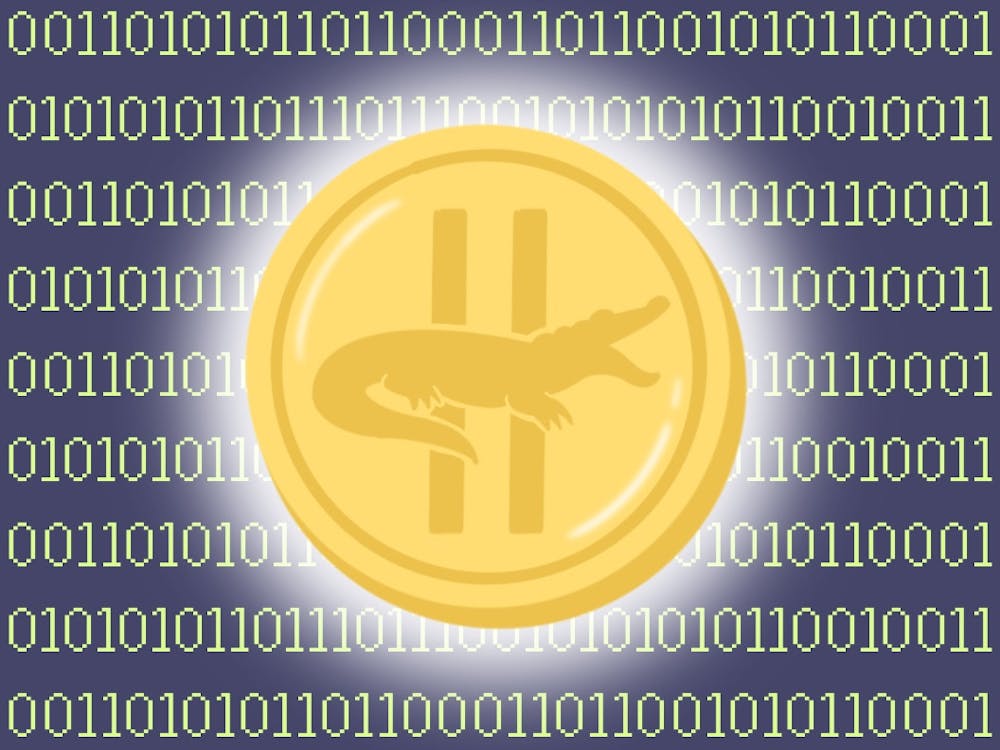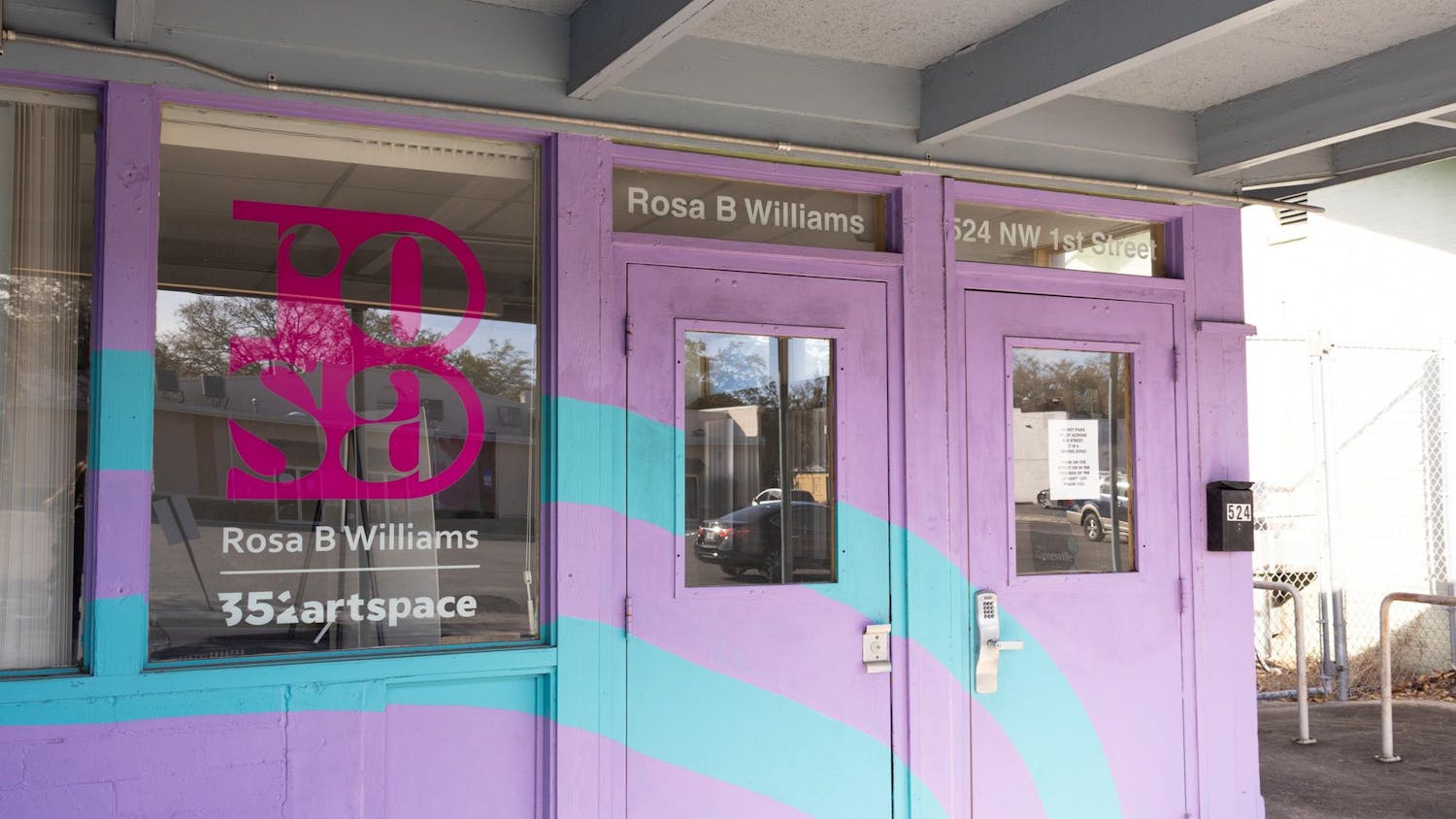UF received $270,000 to provide resources to students who want to learn and develop blockchain technology including cryptocurrencies and NFTs.
The grant, received on Jan. 25, will fund the development of two undergraduate courses and four free professional courses on Canvas that will be available to the public, said Marko Suvajdzic, associate director and professor at the Digital Worlds Institute. The Blockchain Lab will be housed within UF’s Digital World Institute at the College of Art.
Blockchain is a complex technology, and its applications have not yet been fully defined. Some popular applications of the blockchain include cryptocurrencies like Dogecoin and non-fungible tokens, or NFTs, which are typically digital artworks, like Bored Ape.
Suvajdzic applied for the grant through the Algorand Foundation Grant Program.
“The blockchain lab by its very mission exists to support blockchain related activities both on campus and in Gainesville in general,” Suvajdzic said.
Fifty students are already enrolled in Blockchain Innovations in Digital Arts and Sciences. The class has been steadily increasing in size since its inception three years ago and will also be funded with the grant, Suvajdzic said
The Blockchain Innovations course was Ramessa Khan’s favorite class this semester. The 21-year-old UF data science senior from Bangladesh said the lab increased the amount of resources at her disposal and allowed her to expand her network.
Khan is developing a virtual reality NFT video game that will be accessible to as many people as possible.
In her home country, children cannot engage with these new technologies due to lack of resources and an oppressive government, she said.
“I want to give a chance for communities — like the one I'm from — to have access to things like this,” she wrote in a text message.
Maurice Hendrix, a 21-year-old UF digital arts and sciences senior, said the course teaches students the history and development of blockchain technology without getting too technical.
He took the class in Spring 2020 and has been interested in the blockchain since.
“This moment right now that’s happening with NFTs is something we definitely talked about two years ago,” he said. “So it’s kind of crazy because it’s like, dang, I really wish I would have spent a little bit more time learning the … programmatic side of how to actually develop the stuff for the blockchain.”
As a musician, Hendrix is disheartened by the money streaming platforms, like Spotify or Apple Music, take from creators. NFTs act as a more direct link between artists and consumers.
“It’s just a way to connect the fans and the artist better.” Hendrix said. “It’s just more trustworthy than the current standards of the music industry.”
However, Tao Li, an assistant professor of finance, said because blockchain is a new technology there is a general lack of regulation in comparison to traditional markets.
Power consumption is another concern with current technologies that use the blockchain. Bitcoin mining is one of the top consumers of energy annually worldwide, Suvajdzic said.
To create Bitcoin, it takes 91 terawatt-hours of electricity annually, which is more than what is used in Finland — the nation of about 5.5 million — according to a New York Times article.
Older cryptocurrencies, like Bitcoin, require an immense amount of processing power to add data into the database because all computers must verify the transaction is legitimate.
Algorand, however, uses a newer consensus mechanism known as proof of stake, which requires a smaller number of validators making it more efficient, Li said.
The company is the “most efficient and greenest blockchain available,” according to a press release by Algorand.
Algorand is a green crypto and has committed itself to be carbon negative, Suvajdzic said.
He compared Blockchain’s emergence to the birth of the internet; people need to be educated on the new technology.
Hendrix also sees the necessity for education in not only blockchain development, but also in its ethical concerns.
“The best thing I could suggest is just educate yourself first on what you're actually getting into,” Hendrix said.
Contact Fernando at ffigueroa@alligator.org. Follow him on Twitter @fernfigue.
Correction: This article has been updated to show the Digital World Institute is part of UF's College of Art. A previous version of this article reported otherwise.
Fern is a junior journalism and sustainability studies major. He previously reported for the University and Metro desks. Now, he covers the environmental beat on the Enterprise desk. When he's not reporting, you can find him dancing to house music at Barcade or taking photos on his Olympus.






